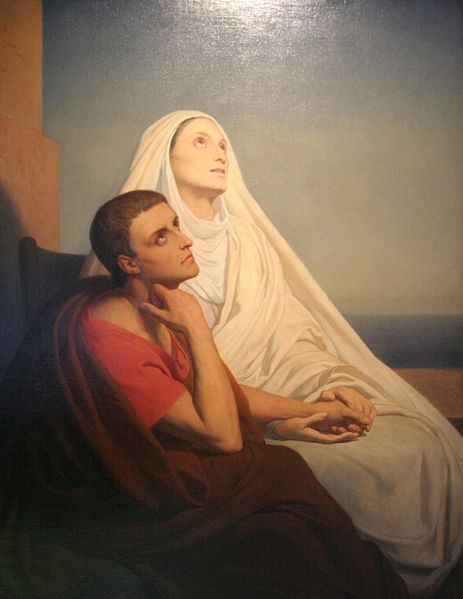Those words of Willie were for my benefit, but, needless to say, I was in complete agreement with what he said. However, Willie’s story did not end there. ‘You know’, he said ‘after that funeral Mass an elderly man approached me and said to me “Today was the first time I ever heard a talk like the talk you gave at the Mass. Until now, I had never heard of the resurrection of the dead – and somehow, it makes a lot of sense to me. Thank you for giving me the opportunity to hear that homily. If I had a chance I’d like to study the Catholic faith. Do you know if there’s a Catholic Church close to where I live?” And Willie continued, ‘That was about a year ago – something that I did not know at that time was that that man was an artist who lived about a hundred miles away. That painting came from him to me as an expression of thanks – thanks for my homily at the funeral Mass, but also as an expression of profound gratitude for the fact that he was studying the Catholic faith, and in hoping to be baptized in the not too distant future in a church close to where he lives’.
I have told this story because I believe that if Willie Spicer had a chance to speak to us today, he would say to us: ‘It’s all right to feel sad and to grieve on this occasion. I would feel the same way if I were in your place. But, don’t be carried away by sadness and grief. Today’s sadness and grief cannot compare with the joy and the happiness and the glory that will be ours if we but believe that the God who loves us, loves us so much that He gave His only Son for us’.
Preface I for the Dead puts it this way:
In him [Christ] the hope of blessed resurrection has dawned,
that those saddened by the certainty of dying
might be consoled by the promise of immortality to come.
Indeed for your faithful, Lord,
life is changed not ended,
and, when this earthly dwelling turns to dust,
an eternal dwelling is made ready for them in heaven.
Father Willie Spicer emphasised that belief in the Resurrection and the hope it gives when preaching at funerals. In Japan probably at every funeral Mass he celebrated there were people present who weren't Christians. To them he was proclaiming the central truth of our Christian faith. In the case of the artist he spoke about that proclamation of our faith and of the hope of the resurrection spoke to his heart and led him to Jesus the Risen Lord.
In November we remember and pray for the dead in a special way. The readings in this Sunday's Mass can lead us to reflect on the reality that one day each of us will be remembered and prayed for by others. May the Collect for the first of the three Masses on The Commemoration of All the Faithful Departed, 2 November, help us in this:
Listen kindly to our prayers, O Lord,
and, as our faith in your Son,
raised from the dead, is deepened,
so may our hope of resurrection for your departed servants
also find new strength.
Through our Lord Jesus Christ, your Son,
who lives and reigns with you in the unity of the Holy Spirit,
one God, for ever and ever.












